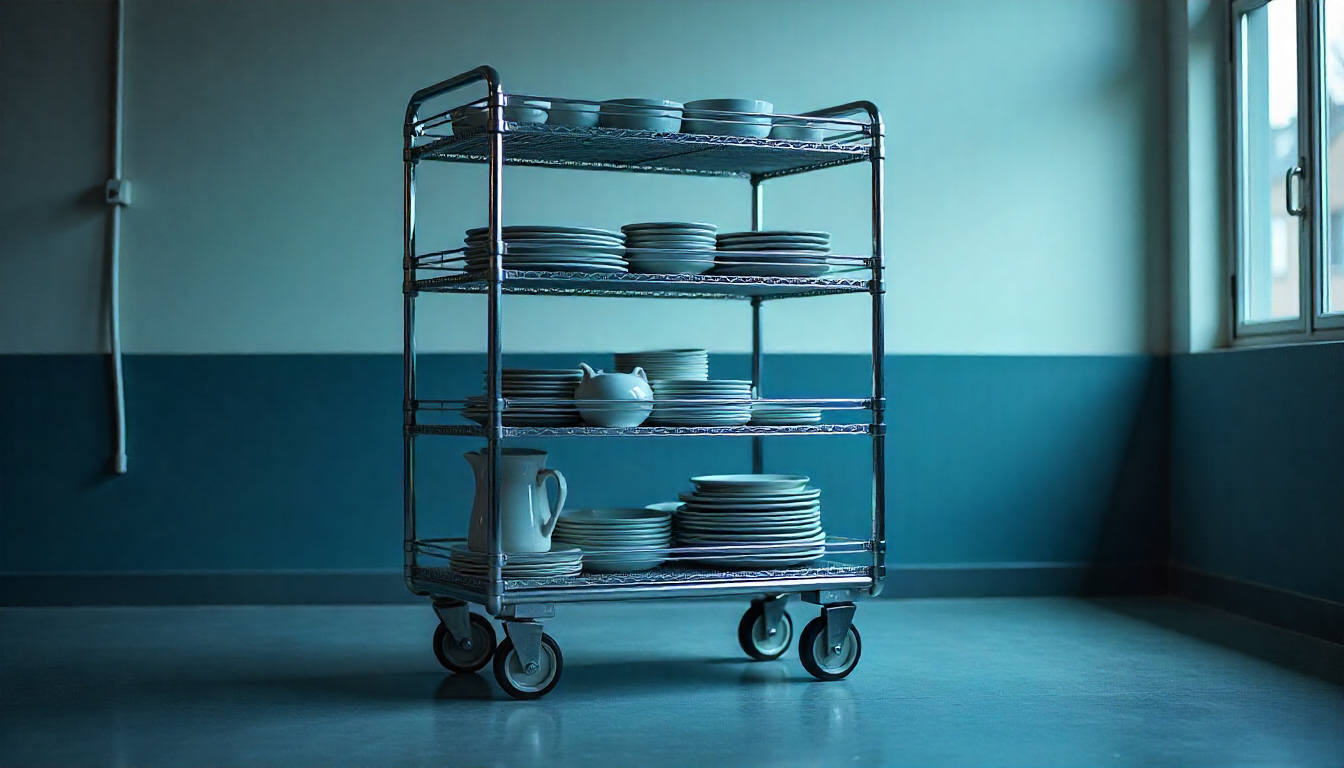In the buzzing world of hospitality, where speed, hygiene, and workflow mean everything, one piece of equipment silently does the heavy lifting—afruimwagens. Whether in a five-star hotel, a bustling self-service buffet, or a school canteen, these clearing carts are essential to ensuring that operations stay smooth, clean, and professional.
But what exactly are afruimwagens? What makes them so vital, and how do you choose the right one? In this article, we’ll explore everything you need to know about these versatile workhorses of the horeca industry.
What Are Afruimwagens?
Afruimwagens, translated from Dutch as “clearing trolleys,” are mobile carts designed to collect and transport used dishes, cutlery, trays, and more from dining areas to kitchens. They’re usually fitted with multiple shelves, bins, or containers to separate different types of items efficiently.
Commonly made from RVS (stainless steel) or high-density plastic, afruimwagens balance hygiene with durability and ease of movement. Their role may appear basic, but their impact on service efficiency and cleanliness is anything but.
Why Afruimwagens Are Essential in Hospitality
Here’s why they’re non-negotiable in modern horeca settings:
- Efficiency Boost: Staff can clear multiple tables in a single trip, speeding up the turnover rate during peak service hours.
- Hygiene and Safety: Separating dirty dishes from clean areas helps comply with HACCP standards, preventing cross-contamination.
- Staff Wellbeing: Instead of carrying heavy dish stacks back and forth, employees can wheel loads with minimal physical strain.
- Professional Appearance: A sleek afruimwagen can subtly signal order and organization, contributing to a positive guest impression.
Whether in a restaurant, event hall, or hospital cafeteria, the use of a reliable clearing trolley dramatically improves service flow.
Types of Afruimwagens Available
Depending on your setting and requirements, you’ll encounter different types:
- Stainless Steel Afruimwagens: These are robust, rust-resistant, and easy to clean—ideal for heavy-duty use.
- Plastic Afruimwagens: Lighter, often cheaper, and perfect for fast-paced environments like schools or outdoor catering.
- Foldable Models: Great for venues with tight storage space.
- Custom Designs: Larger venues may invest in trolleys with built-in bins or covered compartments for better hygiene control.
Comparing RVS vs. Plastic
RVS afruimwagens are highly durable and built for long-term use, making them ideal for demanding hospitality environments, though their heavier weight and higher cost can be drawbacks. They offer excellent hygiene benefits, being easy to sanitize and fully HACCP-compliant, and their professional, high-end appearance makes them suitable for upscale settings. In contrast, plastic afruimwagens are lightweight, easier to maneuver, and more affordable upfront, making them practical for smaller operations or frequent repositioning. While they’re generally easy to clean, they may stain over time and tend to have a more casual look, which might not suit fine dining establishments.
For long-term investment, stainless steel models often pay off by outlasting plastic options—especially in environments with heavy traffic or frequent cleaning.
Key Features to Look For
When shopping for afruimwagens, consider these important elements:
- Shelving Capacity: More tiers mean higher capacity. Look for reinforced shelves for durability.
- Mobility: Swivel wheels, preferably with brakes, offer smooth navigation.
- Safety: Protective bumpers and lockable wheels minimize accidents.
- Storage Efficiency: Foldable designs save space when not in use.
- Ease of Cleaning: Smooth surfaces and rust-resistant frames are essential.
Brands like Vogue and Rhima offer industry-trusted options with reliable construction and thoughtful design details.
Ideal Environments for Afruimwagens
Afruimwagens thrive in:
- Restaurants & Cafés: Streamlining the collection of dishes during rush hours.
- Hotels & Banquet Halls: Handling clearing during conferences, buffets, or events.
- Catering Services: Mobile setups benefit from the portability and convenience.
- Hospitals & Care Homes: Hygiene-focused environments that require daily clearing cycles.
- School & Workplace Canteens: Frequent use demands lightweight, easy-to-clean options.
Top Models and Where to Buy
Some standout models include:
- Vogue RVS Trolley: Three plastic trays, sturdy stainless frame, lockable wheels, and bumpers.
- Rhima Combinatiewagens: Modular, with accessories and built-in sorting options.
- Maxima Stainless Clearing Trolley: Affordable and durable, suitable for mid-sized kitchens.
Trusted suppliers include:
- HorecaTraders
- Maxima Kitchen Equipment
- Goos Horeca
- Rhima
- HorecaGrootkeukenshop
Conclusion: A Small Cart That Makes a Big Difference
Afruimwagens may not be glamorous, but they’re vital in creating an efficient, hygienic, and guest-friendly environment. From boosting staff productivity to upholding cleanliness standards, these trolleys deserve recognition as silent cornerstones of the hospitality world.
Choosing the right model—tailored to your space, budget, and usage—will improve not only your workflow but also your guests’ overall experience.
FAQs
What is the best material for afruimwagens?
Stainless steel (RVS) is the gold standard for durability and hygiene, but plastic is lighter and suitable for less intense use.
How do I clean and maintain an afruimwagen?
Use a mild detergent and a soft cloth. Avoid abrasive cleaners, especially for RVS models.
Do afruimwagens come in standard sizes?
Most suppliers offer a range of sizes. Custom dimensions are also available for large operations.
Can I use an afruimwagen outside?
Yes, choose a weather-resistant model with larger wheels for outdoor terrain.
What safety features should I look for?
Lockable wheels, rounded edges, and protective bumpers are all essential for safe use in busy environments.
How much do afruimwagens cost?
Basic plastic models start around €150, while high-end RVS units can cost upwards of €400 depending on features.
